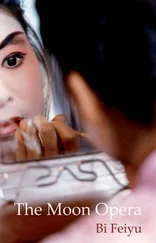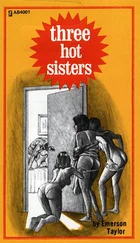At an administrators’ meeting, Director Qian said that seizing the thief was not as important as making this incident an example—using it as a negative teaching model in the service of thoroughly rectifying the students’ thoughts and behavior. According to him, the school had taken a downward turn. Some of the boys were letting their hair grow long, and a few of the girls had begun wearing bell-bottomed pants. “You call that a hairstyle? And what about those pants? I’m forty-three years old,” he said, “and I’ve never seen the likes of this.” They also had to be on guard against the actions of the off-campus juvenile delinquents who wore froglike shades and hung around the school gate with a Sanyo cassette player blasting decadent music by Teresa Teng—“Sweet Wine in Coffee” and “When Will the Gentleman Return?” What kind of crazy music was that? These were all signs of danger that had to be dealt with early and decisively.
“What are we running here?” Director Qian asked. “It’s a teacher-training school. All signs prove that unhealthy societal influences have already seeped onto our campus. We must eliminate them now. Don’t expect them to die on their own. We must be vigilant, we cannot let down our guard.”
So Director Qian devised a policy he called “outside loose and inside tight.” “Outside loose” meant that they must continue the normal operation of school affairs and give that particular student a false sense of security to draw her out, like enticing a snake from its den. “Inside tight” required everyone to keep their eyes open and “not let go of that thread, even for a second.”
“Outside loose” proved hard to maintain with everyone so tense. Yuyang was a case in point. What exactly had she done after finishing the race? Danger lurked in her inability to explain why she had returned to the dorm alone. After two days of indecision, she went to see her psychology teacher, Ms. Huang Cuiyun, who was also the assistant director of student affairs. It was a wise move, for if she hadn’t, it would have been virtually impossible to prove her innocence after her period was over. She explained the situation to Ms. Huang, telling her that she’d gone back to the dorm because of her “special condition.” After hearing her out, Ms. Huang took her into the girls’ toilet, where she told her to drop her pants and show her the pad. Obviously, she was telling the truth—that was something no one could fake.
Ms. Huang, a woman in her forties who had been mistakenly condemned as a rightist, [11] A label forced on individuals who were critical of Mao’s disastrous Great Leap Forward in the 1950s.
had been sent from the county level to teach at the school after her rehabilitation. Unlike Director Qian, she was friendly and approachable, always ready with an easy smile, like a mother, or, perhaps, a big sister. Though she was an assistant director, she told the girls to call her Teacher Huang, not Director Huang, and for that she earned respect and credibility from the teachers and students alike. After checking Yuyang out, she smiled and asked, “So what does this prove, Wang Yuyang?”
Yuyang pondered the question and had to agree that it really didn’t prove much. The special condition only confirmed that she had returned to the dorm alone, which conversely proved that she had been at the scene of the theft. Sweat beaded the tip of her nose as she stood there dumbfounded before blurting out, “I didn’t do it.”
“Before the thief is found,” Teacher Huang softly replied, “everyone is a suspect, even me. That’s a possibility, isn’t it?” What more could Yuyang say since even the teacher included herself among the suspects? Aggressively defending herself at this point would reflect badly on her attitude.
The scope of the investigation kept changing, sometimes it expanded, sometimes it contracted, but nothing came of it. Four days quickly passed without a breakthrough. During those four days, the girls in Section Three gained a keen and personal understanding of the terms “steely discipline” and “steely character.” Steel was a metal they came to know well. It was expressionless, wordless, silent—but heavy and hard, with an oppressive power. They developed a fear of steel because its absence of motion was always temporary. Once it began to move, no one knew what might happen. They also learned that at a certain temperature anything could turn to steel—an event, time, or a mood. Once any of these became steel, they turned heavy and hard and lodged in the hearts of all the Section Three students. Gloom lay heavily over their classes, where everyone walked softly, afraid of bumping into the steel— clang. Another possibility was that steel would silently take a large chunk of their flesh.
In relative terms, Wang Yuyang felt more pressure than the others, and not just from the school administration; it came largely from other students, even from herself. Not knowing what she’d done or what others might be thinking she’d done and not being particularly articulate to begin with, she decided not to say anything. But that made it difficult to hold her head up in public. She could be numb to the pressure, but she couldn’t work the same magic on her fellow students, whose eyes were deeply penetrating. More significantly, their imagination was equally penetrating. A rumor was already spreading that Wang Yuyang and Director Qian had entered a stage of stalemate as they waged psychological warfare, waiting to see who would blink first; either the east wind would have the upper hand or the west wind would prevail. [12] A Maoist slogan that means the East (essentially China) shall prevail over the West (mainly Europe and the U.S.).
The other girls all knew that this was the calm before the storm; it was just a matter of when.
The storm struck without the usual warning signs. Tranquillity had reigned, though only among the school administrators; the turmoil among the students had never ceased. As the saying goes: “The trees want to stop moving, but the wind keeps blowing.” At nine o’clock Saturday morning Beijing time, Director Qian, followed by Teacher Huang and the homeroom teacher, walked into Section Three’s classroom; all the girls were present. Director Qian was all smiles, uncharacteristically relaxed, as if he’d shed a heavy load. Teacher Huang, on the other hand, seemed depressed. Her usual amity was gone, and she seemed to be under substantial strain. One look at Director Qian and the students knew that the case had been solved and that the affair had come to an end. But their anxiety was palpable as they waited to hear a name; the atmosphere was oppressive. Yuyang swallowed, so did the other students. There was plenty of reason for them to be nervous. A chunk of steel was about to drop from the sky, and before it fell, who could predict whose head it would strike?
The students were touched the moment Teacher Huang opened her mouth to speak. Her voice was low, a bit raspy, but they could tell she was trying hard to turn her grief into strength. She began by talking about her son and daughter, the former a student at Beijing University and the latter a student at Nanjing University. Saying she was proud of her children, she spoke in a soft voice, her gentle expression brimming with motherly love and concern, which, for no apparent reason, elicited sorrow from everyone in the room. The students were in a fog, confused over why she was talking about her family at this critical moment. Nonetheless, from her speech they could tell how much she cared. A meeting had been held the night before, and it had been decided to expel the “recalcitrant, unrepentant student.” With a misty gaze coming from her reddening eyes, Teacher Huang said forcefully, “I did not agree.”
Читать дальше











